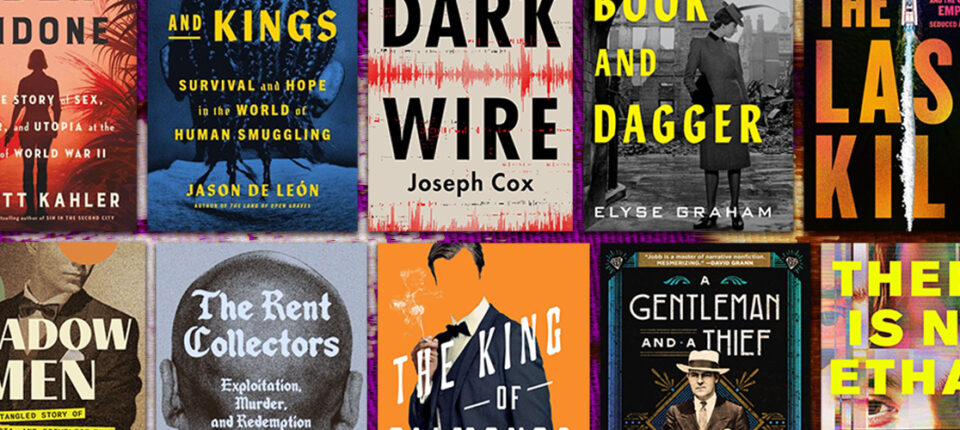The CrimeReads editors make their selections for the best nonfiction books of 2024.
*
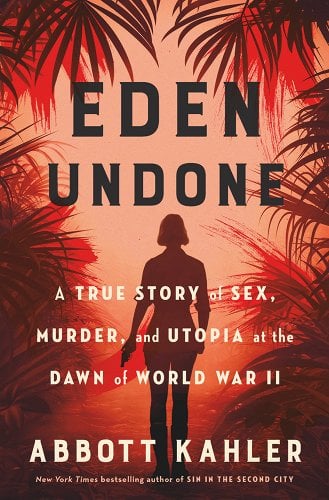
Abbott Kahler, Eden Undone
(Crown)
In Abbott Kahler’s stranger-than-fiction account of murder in a utopian community, two couples and one throuple flee Nazi Germany to live an idealized existence in the Galapagos Islands. Honestly, the subtitle of the book says it better than I ever could: there is sex! There is murder! And there is utopianism, although it fails to translate into an actual utopia. But the best laid plans, when followed rigidly and put in place by bizarre actors, can’t possibly turn out well. –MO
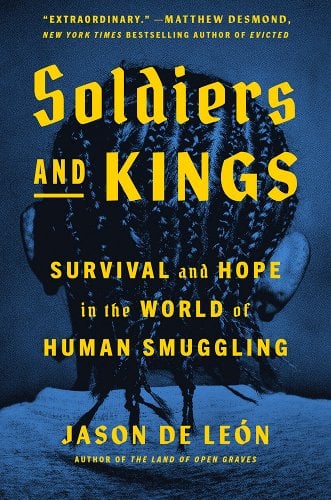
Jason de Léon, Soldiers and Kings
(Viking)
Jason de León is an anthropologist who uses the concept of “radical hanging out”, or embedding himself in communities for long periods of time, to tell the stories of those smugglers who eke out a bare bones living bringing people over dangerous, ever-changing routes towards relative safety. De León is kind, empathetic, and context-savvy when it comes to depicting those who lesser journalists might have rendered as one-dimensional exploitative boogeymen; the real story of exploitation is that of the United States’ impact on Latin American lives. The people in Soldiers and Kings may walk a gritty path of extra-legality, but they were not forced there in a vacuum. –MO
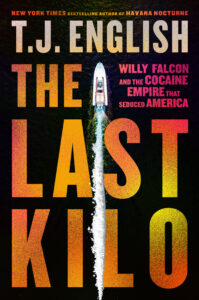
T.J. English, The Last Kilo
(William Morrow)
English’s latest study of crime and mayhem focuses on Wily Falcon and “los Muchachos,” a group of exiles who came to dominate the cocaine trade in the U.S. during the 1980s. English had inside access to Falcon and draws a compelling portrait of the man, but he also uses the story of a small group of Cubans to tell the broader narrative of America’s ongoing infatuation with cocaine, and how that habit comes to spread corruption up and down the ranks of civil society. English is a master of the gangster story, but his books always make larger points about systemic and societal issues and the cultural imagination’s fascination with a certain brand of criminal. –DM
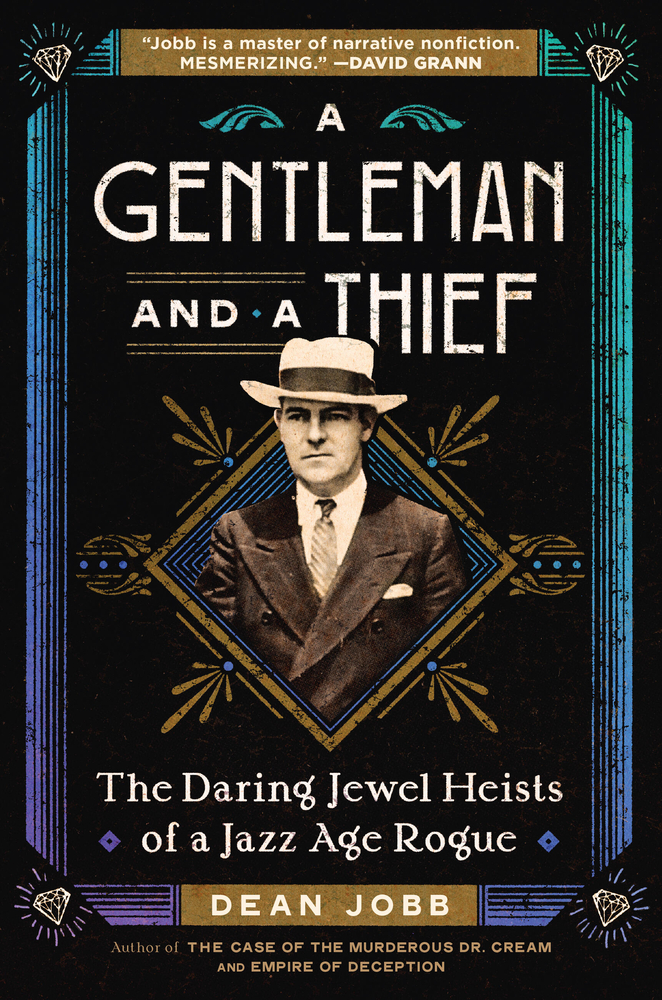
Dean Jobb, A Gentleman and a Thief
(Algonquin)
Arthur Barry rose to fame during the American Jazz Age as the so-called “aristocrat of crime” – a real-life gentleman burglar who moved in rarefied circles and swindled just about anyone who was worth swindling. And doing it, by all accounts, with a dash of class. Jobb tells the wildly entertaining story of Barry’s exploits with admirable style, adding a nice heft of scholarship to the mix. Running through Barry’s scams and thefts becomes a kind of who’s who of the era, and the public’s fascination with the gentleman burglar seems to represent a shifting national consciousness. Jobb is one of the best crime historians at work today, and his latest has all the elements of an epic tale, with a surprisingly moving love story coursing just under the rap sheets and police reports. –DM
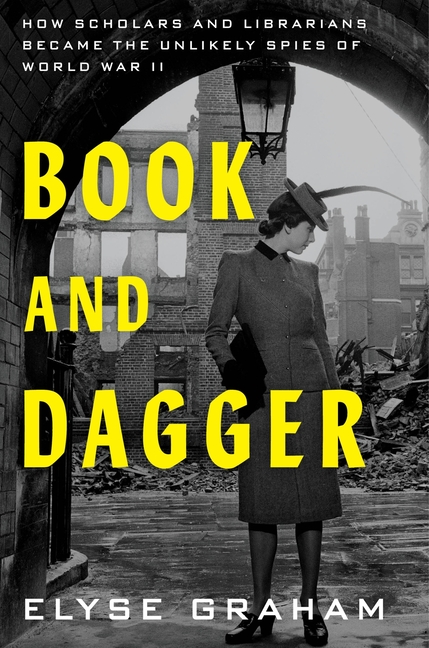
Elyse Graham, Book and Dagger
(Ecco)
Graham’s new book profiles the early days of American intelligence, organized largely to bolster the American war effort after it joined the fighting during WWII, and how the new OSS looked to the country’s librarians and academics to fill its ranks. Graham’s study of the available archives is vast and was performed with a sharp eye for telling human moments amidst the bureaucratic buildup and military maneuverings. In those days, spying was still a kind of intellectual pursuit, and the intellectuals who engaged in it did so with ingenuity and sense of history sweeping them along. Book and Dagger makes for wonderful reading and offers up some unforgettable sketches of the men and women who fought a largely unseen war, one that shaped much of what was to come in the modern era. –DM
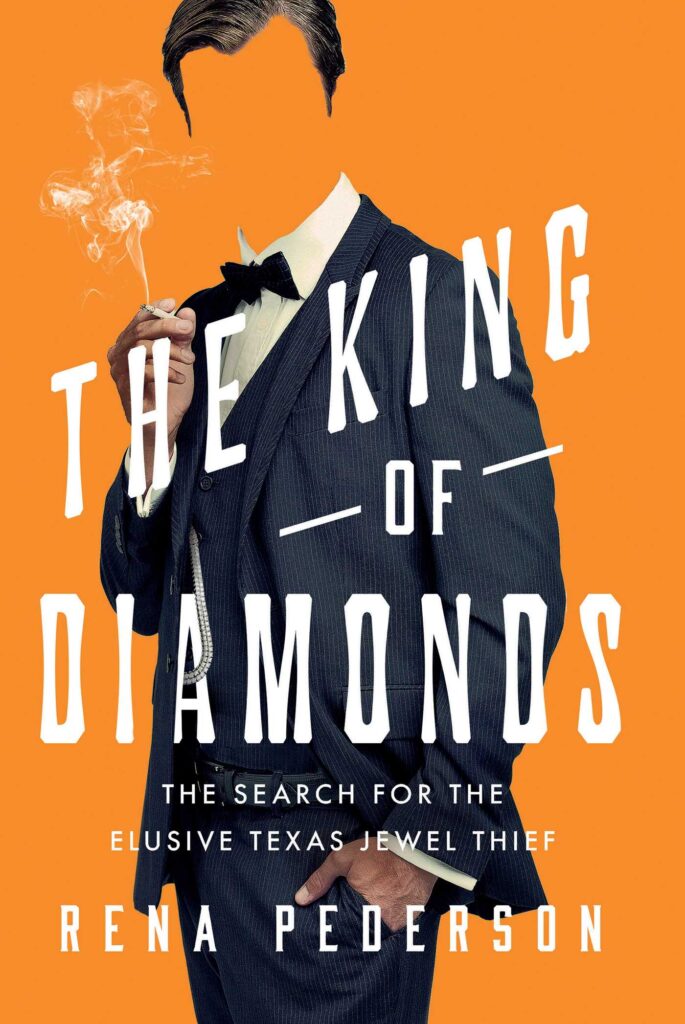
Rena Pederson, The King of Diamonds
(Pegasus)
Mid-century Dallas was positively dripping with rare jewels, and someone on the debutante party circuit became very skilled at purloining the best pieces from the nouveau riche. But who could it be? Rena Pederson, formerly a journalist based in Dallas, goes through a veritable rogues gallery of the city’s underworld, nominally seeking a culprit, but far more interested in setting the scene in the city at large. The characters you’ll meet in these pages are truly larger than life, and Pederson has captured the eclectic spirit of a rare moment in Texas history. –MO

James Polchin, Shadow Men
(Counterpoint)
James Polchin uses the murder of a blackmailer by his wealthy target as a jumping off point to examine power, privilege, gender, and sex in Jazz Age America. Polchin is previously the author of the much-launded Indecent Advances: A Hidden History of True Crime and Prejudice Before Stonewall, and Shadow Men cements his place in the new true crime canon. –MO
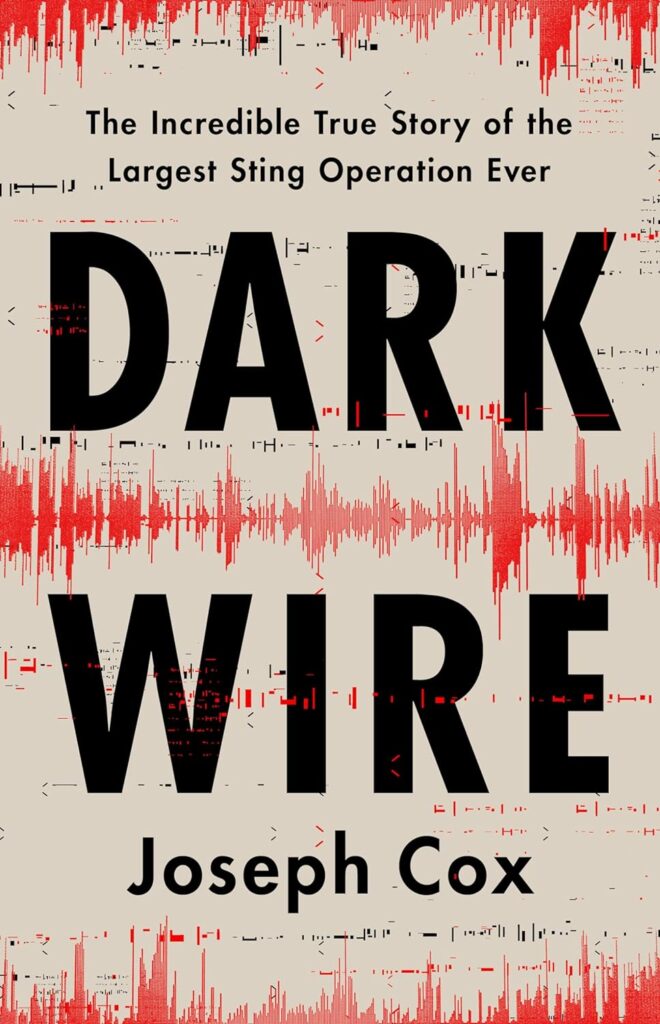
Joseph Cox, Dark Wire
(PublicAffairs)
Cox’s Dark Wire is an absolutely astounding exposé of a telecom operation that exposed crime and corruption at every run of the global system – in short, it’s a hell of a story. In 2018, an encrypted phone messaging app spread through the criminal underworld, briefly becoming a favorite for organized crime. Except, as it turned out, the app was a law enforcement plant: operated by the FBI, with a back door into all communications that allowed law enforcement to monitor everything. It was an audacious stunt and soon began to careen out of control, as the app became more and more popular. Cox has great command over the sprawling story, which offers readers a rare glimpse into a world of crime. –DM
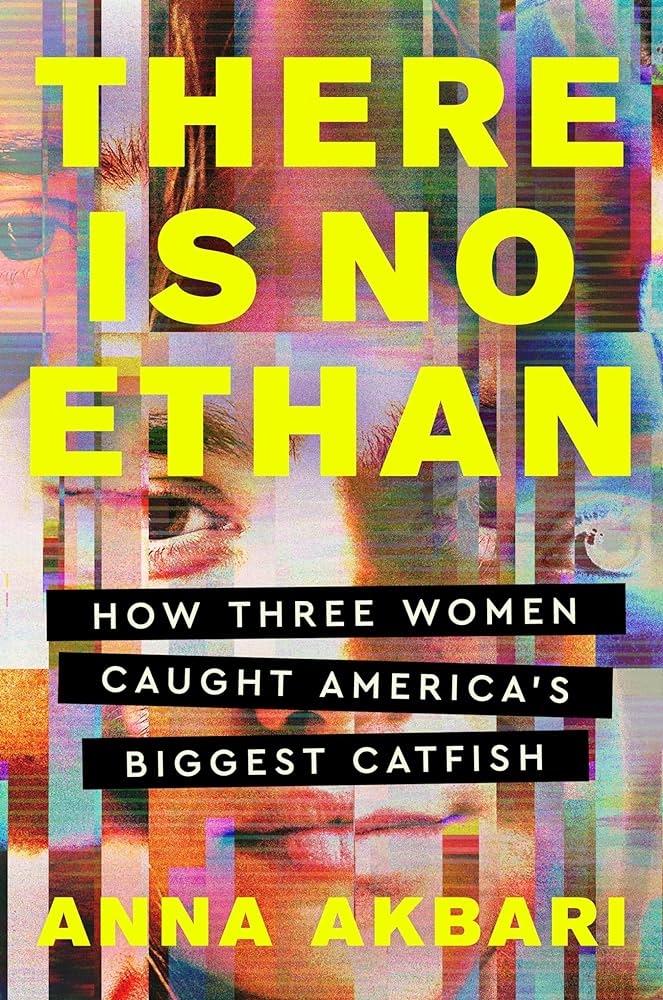
Anna Akbari, There Is No Ethan
(Grand Central)
It’s an online dater’s nightmare: the person you’re into turns out to be a compulsive liar, a manipulative cheater, and a narcissist extraordinaire. But in Anna Akbari’s hilarious and horrifying There Is No Ethan, the women being catfished fight back, connecting over their mutual doubts and launching an investigative effort to uncover the truth about their deceptive internet paramour. This book is so good but also makes me really happy about deleting my dating apps and focusing on IRL meetings. –MO
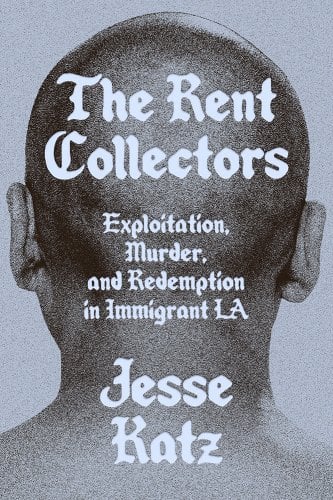
Jesse Katz, The Rent Collectors
(Astra House)
In this stranger-than-fiction story, Jesse Katz unpacks the context of a botched hit and its long-lasting consequences. L.A. is home to numerous street vendors, caught in a gray market economy in which both authorities and criminals add to immigrant families’ financial burdens. A teenager. bent on joining a gang is told to take out a vendor who refuses to pay rent on his small patch of concrete; the target survives, but an infant is killed by a stray bullet. The shooter then is subjected to an assassination attempt, itself botched, and the subsequent long-drawn-out legal consequences reverberate across the Los Angeles underworld. –MO

